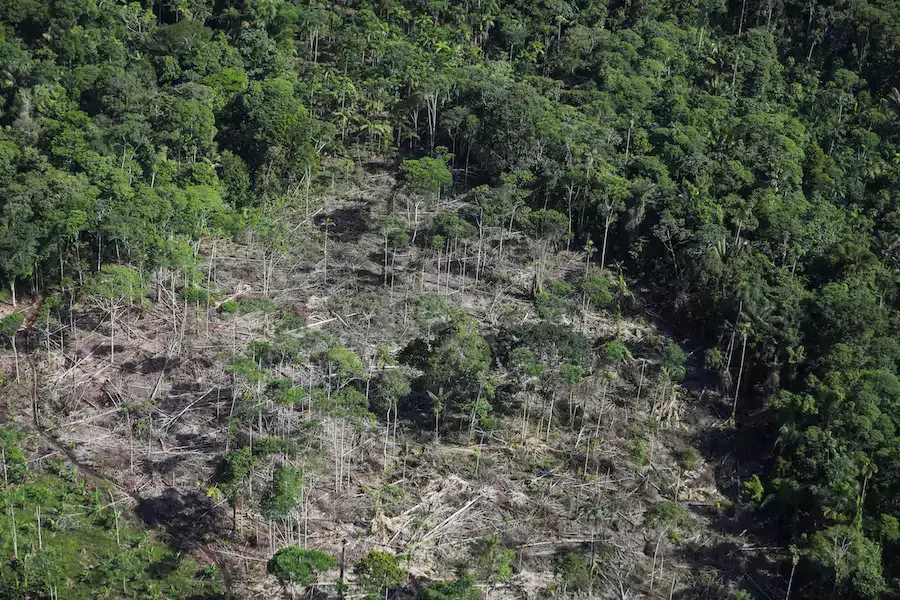Amazon Deforestation Down But Little to Show for COP28, Plus Venezuela-Guyana Tensions

Region will struggle to maintain progress on deforestation. Deforestation rates in the Amazon rainforest fell near-60 percent this year (911,740 hectares) compared to last (2,062,939 hectares). Brazil’s losses declined 59 percent under new President Luiz Inácio Lula da Silva (Lula) due to increased forest surveillance, sanctions against property owners, and equipment and asset seizures from illegal loggers and ranchers. Colombia’s rates fell 67 percent as President Gustavo Petro’s government paid locals to stop clearing forest and prosecuted those financing illegal logging.
Deforestation rates dropped even without significant government involvement. Bolivia’s losses decreased by nearly 60 percent, even though the government refused to set targets and is expanding biodiesel production, upping the demand for soy (a main driver of deforestation). Peru, too, saw forest loss fall by 37 percent—possibly a lingering consequence of Operation Mercury, which led to the arrest of illegal gold miners and destroyed equipment across La Pampa in 2019 and 2020 but then ceased.
More on:
It’s all good news. The question is how long the reductions will last. Progress in Colombia may slow as the Revolutionary Armed Forces of Colombia-Central General Staff (FARC-EMC) dissident group, which had publicly ordered farmers to stop cutting down trees as a gesture towards Petro’s Total Peace efforts, lifted its ban on certain forest clearings. Local capacity matters, as do domestic and international incentives. That’s part of the reason why, at the United Nations’ 28th Climate Change Conference (COP28), Lula called for a $250 billion global fund to support residents preserving local forests, with countries paying a fixed sum per hectare preserved or restored.
In Dubai, pledges don’t match financial commitments for Latin America. Latin American countries signed a series of declarations and pledges at the United Nations’ 28th Climate Change Conference (COP28). Mexico, along with Chile, Costa Rica, the Dominican Republic, El Salvador, Guatemala, Colombia, and Brazil endorsed a voluntary pledge to triple the world’s renewable energy capacity by 2030. Eight Latin American countries signed onto a declaration on sustainable agriculture, resilient food systems, and climate action. Colombia joined an alliance of countries calling for a fossil fuel non-proliferation treaty to establish a new multilateral body to phase out fossil fuels. Brazil pitched a $250 billion global forest conservation fund, but also doubled down on its “all of the above” energy strategy, signing onto the OPEC+ alliance during the summit to deepen its coordination with the oil producer group. An exception was Argentina, announcing it wouldn’t sign any new pledges ahead of new Argentine President Javier Milei’s inauguration.
Advanced industrial economies and multilateral lending reciprocated with some funding for green initiatives, but less than Latin American governments had hoped. It’s unclear how much of this money will end up in the region. A loss and damages fund to assist the world’s poorest and most climate-vulnerable countries in mitigating the effects of climate change received pledges totaling $726 million, despite needs projected in the hundreds of billions of dollars. The Amazon Fund garnered an additional $90 million to combat deforestation in the Amazon rainforest, again a small slice of what is actually needed. Multilateral financial institutions promised larger amounts: some $15 billion from the Development Bank of Latin America and the Caribbean (CAF) over the next seven years for the region and up to $150 billion from the Inter-American Development Bank (IDB) over the next decade along with an additional $5 billion in sustainable development financing for the Amazon. Latin America needs annual investments of between 3.7 percent and 4.9 percent ($215 billion to $284 billion) of regional GDP to accelerate the countries’ green transitions. Without faster growth and higher productivity, that financial boost will have to come from outside.
Maduro uses self-manufactured Essequibo crisis to crack down on the opposition. On Thursday, December 14, Venezuela’s President Nicolás Maduro and Guyana’s President Irfaan Ali will meet in St. Vincent and the Grenadines to discuss conflicting territorial claims over Essequibo: a mineral-rich region which makes up two thirds of Guyana’s territory and lies near the country’s huge offshore oil fields. It’s likely the talks will de-escalate the crisis, after Maduro’s threats to annex the territory met a cold international response from usually friendly governments.
The border crisis has already provided Maduro a pretext to crack down on an increasingly unified, energized opposition. On December 6, Venezuela’s prosecutor general issued arrest warrants for Chavista dissidents and opposition figures for alleged “links and financing” with ExxonMobil, the largest producer in Guyana’s large offshore oil fields. A draft law that would annex Essequibo also bans candidates from running for office who “have publicly favored” Guyana’s side in the dispute or disrespected Venezuelan national symbols. If Venezuela’s opposition remains united in 2024 in the lead up to elections, expect more criminal charges and bans against opposition leaders accused of siding with Guyana.
More on:
 Online Store
Online Store